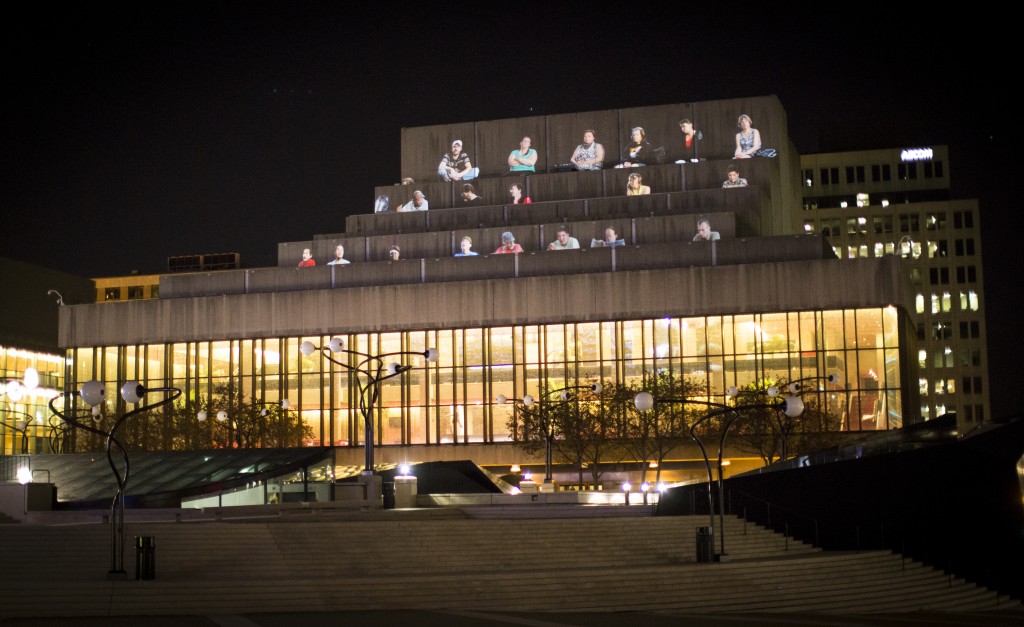“It’s important to give the ones who seem to be invisible the possibility to be visible, to be heard,” says artist Krzysztof Wodiczko while talking about his new Homeless Projection. The video portrait of 21 homeless people sharing their views on life will be shown at Montreal’s Théâtre Maisonneuve every evening until November 23.
- As interactive technology “weighs heavily on our physical experience” of real life, a necessary but ever-complex assignment looms over our cultural institutions: create an engaging, meaningful digital interface that can bridge the real and the virtual. Art in America’s Sarah Hromack notes that the complicated question we must solve is how to harness the monopoly of major social media platforms, both socially and technically, through smart social integration and interface design.
- While more institutions are looking to incorporate technology into our living spaces, Rem Koolhaas shares his concern for “smart” design. With ideas to better integrate smart devices being shaped in inaccessible laboratories and without the public’s influence, modern cities can take away our anonymity, freedom, and sense of adventure.
- Titled The Great Acceleration, the 9th Taipei Biennial surveys an issue closely connected to technological advancements: our impact on the planet. The biennial isn’t what you might readily expect from critic Nicolas Bourriaud. His curation expands on his theory of relational aesthetics, examining contemporary works that look at both prehistoric and post-human eras, “where stones and digital avatars stand in for humans.”
- Maya Lin has been awarded the Dorothy and Lillian Gish Prize, which annually honors “a man or woman who has made an outstanding contribution to the beauty of the world and to mankind’s enjoyment and understanding of life.” The $300,000 prize will go toward her ongoing project What Is Missing—a piece aimed at increasing awareness about the loss of biodiversity.
- In Omer Fast’s Artes Mundi Prize–nominated film Continuity, a German couple repeatedly acts out a reunion with a fake son: “You have an emotional family reunion that becomes gradually disrupted by repetition, and with each repetition there’s a kind of corruption.” While the film touches on a highly political content–the couple’s real son appears to have left home to fight with the ISAF forces—Fast believes that with repetition, the naturalistic understanding of plot, family dynamics, and politics can be upended and left ambiguous.
- Amid conflicts that have worsened the repressive climate in St. Petersburg, Manifesta 10 has been enjoying relative freedom of expression. Participating artists have shared opinions on topics from the Maidan protests to the finances of the Sochi Olympics. Poet and activist Pavel Arsenev even came up with the antigovernment slogan, “You don’t even represent us (You cannot even represent us),” saying, “It is really important for us to include our view and our voices in the public space, because this possibility could end.”
Follow Art News From Elsewhere on the Walker Art Center homepage or via @walkermag, the Walker’s editorial-focused Twitter feed.




